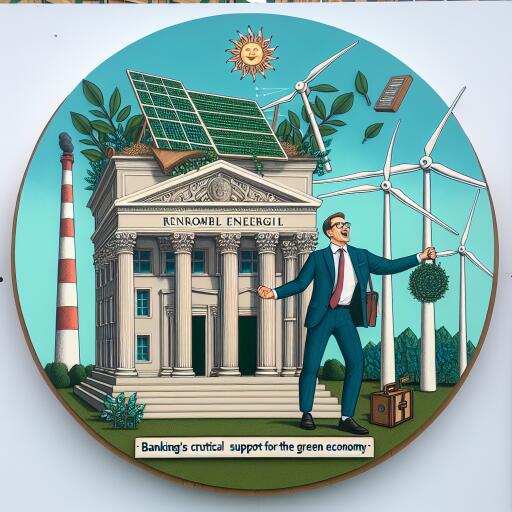
Banking Sector Plays Crucial Role In Supporting Green Economy: NBE Chairperson
Hisham Okasha, the Chairperson of the National Bank of Egypt (NBE), recently put a spotlight on the indispensable role that the banking sector has to play in paving the path toward sustainability. With a strong emphasis on financing projects that align with environmental friendliness, the banking sector is at the forefront of propelling the green economy forward, particularly in Egypt.
During his speech in the session “Sustainable Finance: Investing in Sustainable Development in Africa,” which was part of the inaugural annual forum of the United Nations Global Compact, Okasha elaborated on the dynamic efforts by the NBE. Alongside international partners, the bank is committed to bolstering micro, small, and medium enterprises (MSMEs) in alignment with sustainable development goals and the ambitious Egypt Vision 2030.
This forum, titled “Towards Sustainable Africa,” served as a noteworthy platform for dialogues on sustainable development across the continent. Okasha seized this opportunity to commend the Central Bank of Egypt (CBE) for its vital roles in both guiding and educating Egyptian banks towards embracing sustainability. This strategic direction not only aids in achieving national development goals but also facilitates the shift towards a greener economy while addressing environmental risks.
In demonstrating the NBE’s dedication to social responsibility, Okasha revealed that the bank’s contributions have topped EGP 5.5 billion, adhering to sustainable development standards. This significant investment spans various sectors such as health, education, and initiatives aimed at enhancing the livelihood of Egyptians, with special focus on supporting the nation’s women breadwinners and individuals with disabilities.
Moreover, Mohamed Farid, Chairperson of the Financial Regulatory Authority (FRA), emphasized the investment benefits tied to reducing carbon emissions. Farid argued that minimizing carbon footprints is not just a luxury but a crucial element in contemporary global trade. He further outlined the FRA’s initiative towards achieving carbon neutrality, in harmony with the sustainable development vision of Egypt 2030, by introducing trading and settlement rules for carbon emissions reduction certificates.
The discourse further extended to Hossam Haiba, CEO of the General Authority for Investment and Free Zones, who underscored the Authority’s goal to attract sustainable investments that prioritize both environmental conservation and job creation. Highlighting key sectors like education and infrastructure, Haiba detailed the commitment towards fostering both green and circular economies, emphasizing renewable energy, clean industrial practices, and efficient waste management.
With an optimistic outlook, Haiba unveiled plans to elevate the contribution of renewable energy significantly, pushing beyond the 30% mark in the upcoming year. He also called for heightened engagement from the local private sector in sustainability projects, underlining the enticing incentives available under the Egyptian Investment Law.
This collective stance from Egypt’s banking and financial sector leaders showcases a transformative shift towards sustainability, indicating a robust foundation for the green economy’s future growth. Their concerted efforts underscore not only the financial industry’s potential in environmental conservation but also its pivotal role in realizing sustainable development on a broader scale.





Leave a Reply